Each other’s missing piece
Graduating Special Ed seniors step into the next chapter of their lives
In elementary school, they met as strangers, both not fully verbal. Now, they are embarking on the same journey after high school.
“They started here together,” Special Education teacher Charles Sanders said. “And, they’re leaving together.”
Seniors Samuel “Sammy” Kadayaparambil and Miguel DelgadoOlguin attended Red Elementary school together and have been inseparable ever since.
Sammy’s family immigrated to the U.S. in 2006 to fulfill his father, Roy Varghese’s, pastoral duties when Sammy was three and a half years old. One of the family’s church members noticed similar behavior between Sammy and her child who had autism.
“We had never heard the word autism before,” said Princess Roy, Sammy’s mother. “We are also human beings so we were in denial and thought that my family cannot have this issue. Since we come from an Indian community and since he’s an achen [pastor] in the church, it was frowned upon.”
After his family learned of his autism, Miguel and his mother, Gardenia Olguin, underwent significant life changes.
“His father left us shortly after [Miguel] was diagnosed,” Olguin said. “Ever since, my life has been dedicated to my son.”
Olguin recognizes the presence of stigma surrounding people with special needs.
“The society we live in doesn’t accept [him] fully,” Olguin said. “They need a lot of love to show them that you care.”
Sammy’s parents made an appointment at Texas Children’s Hospital where psychologists and speech therapists diagnosed him on the spectrum of autism with developmental delays, learning disabilities and cognitive disabilities.
“I could actually write a book about the day we found out about Sammy’s condition,” Roy said. “It felt like we had an earthquake in our house to a magnitude of hundreds. It crumbled our house, but we seeked out for help which was the right thing to do.”
In order to support her son, Olguin works most days and nights. Because of her son’s autism, Olguin is only concerned with ensuring her son succeeds.
“I tell him that his only job is to learn,” Olguin said. “I cook, I clean, I work. Because he goes to school, his only ‘job’ is to make sure he reteaches me everything he’s learned.”
Varghese said most of his son’s social skills in high school developed when he formed his own friend group.
“We were always concerned about his social behavior. In school there was a group of kids who were struggling like him and the majority of them were non-verbal kids,” Varghese said. “[His friends] helped him to socialize. He connects with the community. If there is a change, he’s open to adapt.”
During Miguel’s time under the instruction of Gerald Greene and Charles Sanders, their teachers, he started making eye contact and asking stimulating questions. His mother watched him grow from a shy boy, to an independent young man.
“He is very independent,” Olguin said. “He has grown so much.”
For the two, their friendship has shaped their understanding of the world around them.
Olguin said they know they’re different, but that doesn’t mean that they can’t succeed in life.
“Miguel has been a companion for him, so that gave him a kind of connection where he knows that there is a place for him to spend his time with Miguel and the rest of the kids,” Varghese said.
Sanders and Greene agreed that both students have come a far way in developing their social skills.
“Miguel usually has his head down when he’s talking. We’re trying to help him make eye contact and grow confidence,” said Greene. “If Sammy was hired at Walmart, he’ll probably be the best greeter they’ve had.”
“Bellaire teachers respect them and treat them with dignity while knowing their challenges and coming down to the same level they are at,” said Varghese. “Every day can be different for them in their emotional level and mood swings. If anything happens, their mood will change from yesterday to today to tomorrow.”
The instructions that their teachers give them stay in their minds. Varghese said that sometimes Sam would say ‘Stop moving your chair’ as a reflection of what his teacher told him that day.
“There are some days when he’s not in a good mood, so that means he probably got in trouble in class,” said Roy. “He doesn’t know how to lie well enough to cover himself, so one day he tells us to stop cheating and copying, so what does that mean? He was cheating himself.”
Sammy and Miguel both work at several places including SuitMart, Goodwill and Family Dollar. Through Community-Based Vocational Education, Sammy and Miguel learn how to function in a work environment.
“We identify students that are capable of doing things like social skills,” Greene said. “We find community partners and businesses to allow us to use their place of business as a classroom. Getting real work experience in a real work environment and building up skills that they can use for their resume beyond the high school setting.”
Olguin reminds her son that no matter what people say or do, he can do anything he puts his mind to.
“Miguel is the type of person that if you tell him to do something, he’ll do it all day without any direction or prompting until you stop him,” Greene said. “He arranged the whole tie
section at Suit Mart– probably 200-300 ties– he color coded.”
Greene said that the workers are always pleased to see Miguel bring joy to other people.
“It’s so warming to see them performing the task and how people respond to the great work they’ve done,” Greene said.
After graduating, Sammy and Miguel plan to attend Debakey High School under the “Project Search” program. It aims to enable disabled 18+ students with the skills to become competitive employees in diverse fields.
“Even though they didn’t spend time with each other, the very fact that they know that they’ll see each other in class provides a sense of safety and encouragement to be together,” said Varghese. “So I don’t know if they have developed [a] great friendship, but the presence of each other gives [the] other confidence.”
Your donation will support the student journalists of Bellaire High School. Your contribution will allow us to purchase equipment and cover our annual website hosting costs.



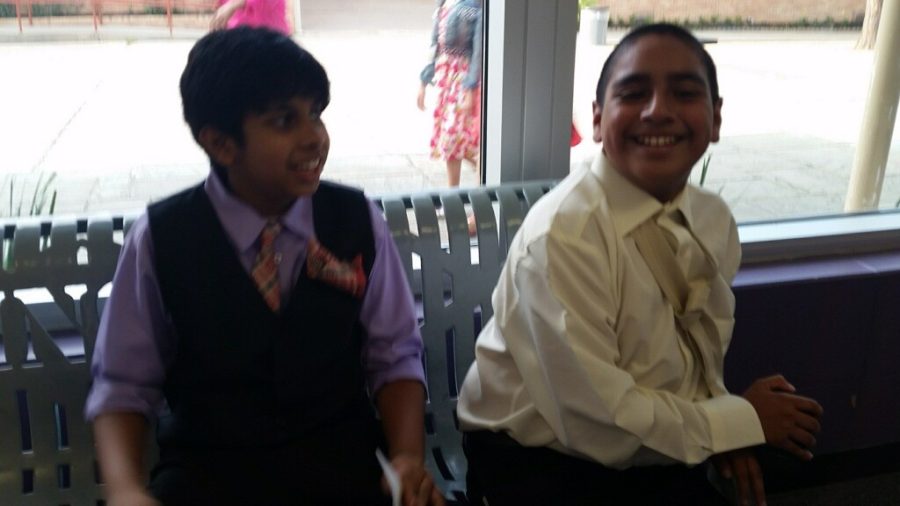
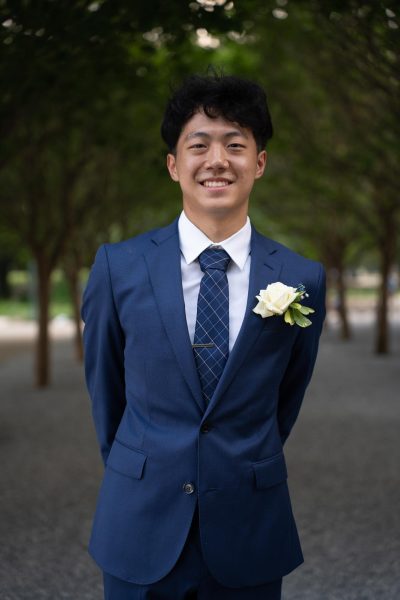
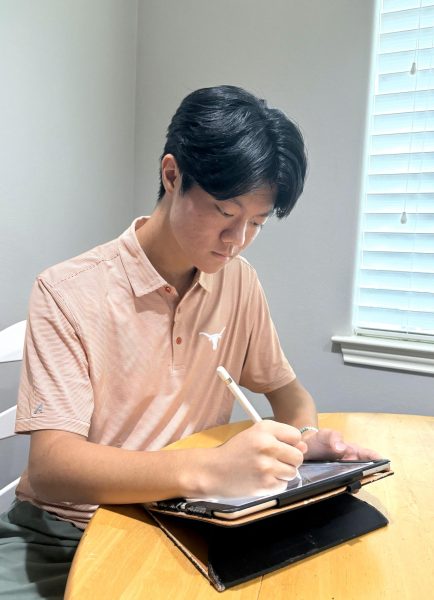
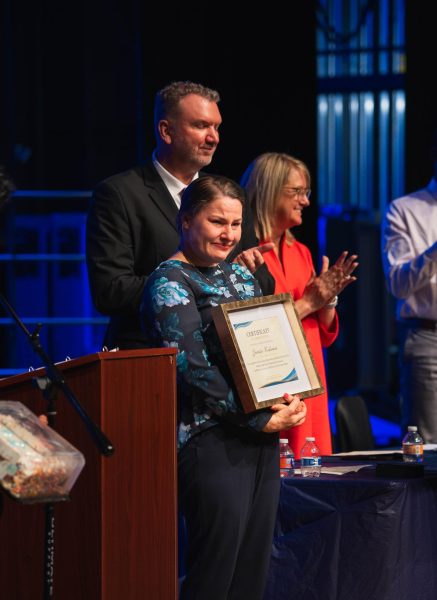
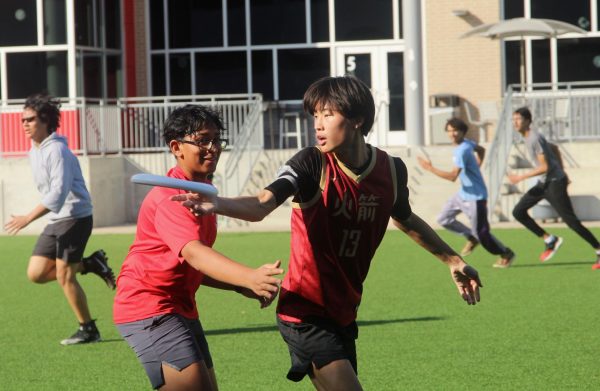

Smruthi Garlapati • Nov 4, 2023 at 10:09 pm
Very well written story! Such a beautiful friendship!
Claire B • May 12, 2023 at 3:06 pm
Insightful article 🙂 Sammy and Miguel are some of the best people I’ve ever met. Good story guys!!